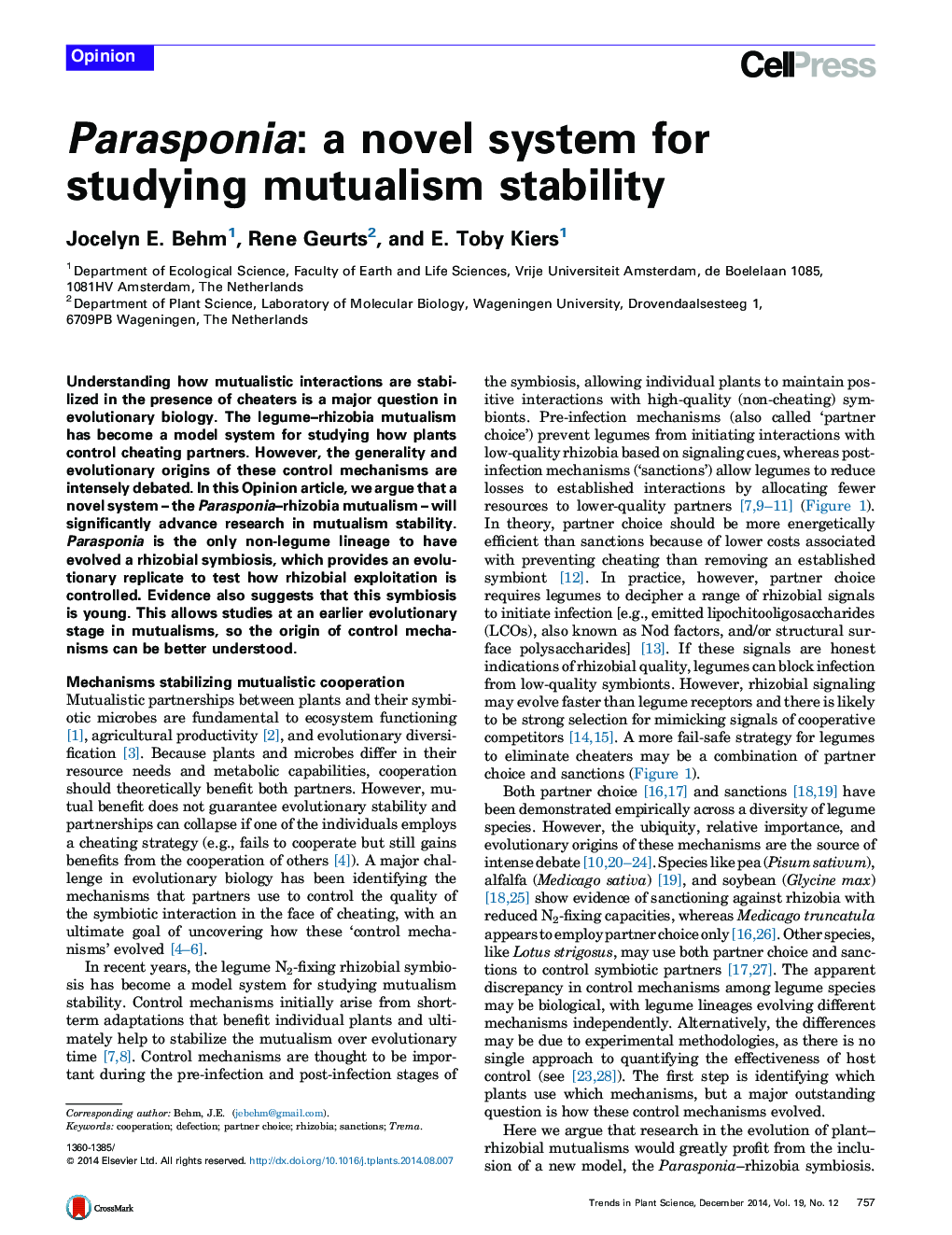| Article ID | Journal | Published Year | Pages | File Type |
|---|---|---|---|---|
| 2825834 | Trends in Plant Science | 2014 | 7 Pages |
•Parasponia is the only non-legume lineage with a N2-fixing rhizobial mutualism.•Parasponia provides an evolutionary replicate of how plants control rhizobia.•Compared with legumes, Parasponia is likely to use basal rhizobia-control mechanisms.•Parasponia offers great insight into the evolution of mutualism stability.
Understanding how mutualistic interactions are stabilized in the presence of cheaters is a major question in evolutionary biology. The legume–rhizobia mutualism has become a model system for studying how plants control cheating partners. However, the generality and evolutionary origins of these control mechanisms are intensely debated. In this Opinion article, we argue that a novel system – the Parasponia–rhizobia mutualism – will significantly advance research in mutualism stability. Parasponia is the only non-legume lineage to have evolved a rhizobial symbiosis, which provides an evolutionary replicate to test how rhizobial exploitation is controlled. Evidence also suggests that this symbiosis is young. This allows studies at an earlier evolutionary stage in mutualisms, so the origin of control mechanisms can be better understood.
